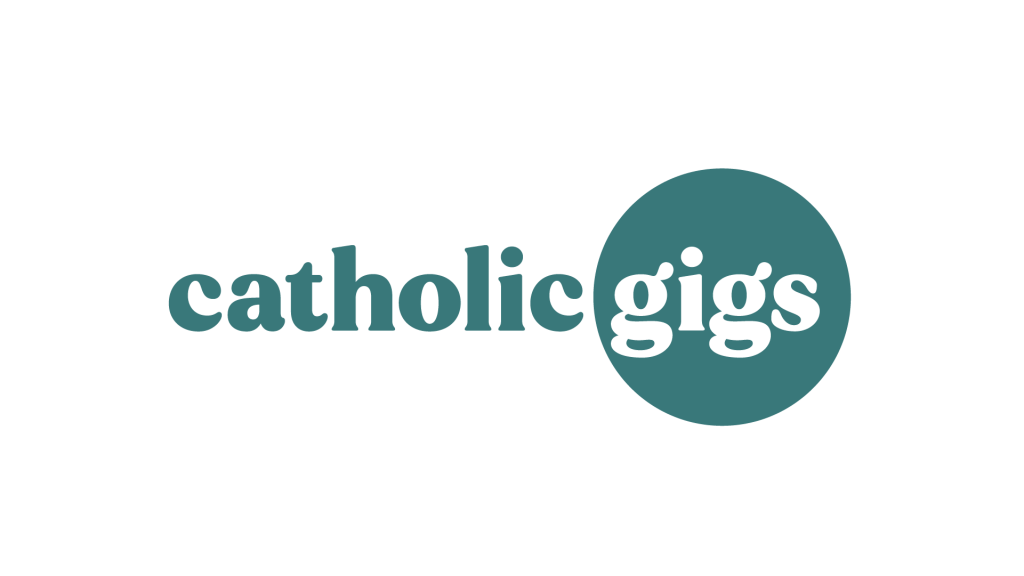In an era where AI can write code, analyze data, and even create art, the question “What can Catholic people uniquely contribute?” has never been more pressing. The answer lies not in competing with machines on their terms, but in embracing the deeply Catholic person skills that form us, connect us, and serve the common good.
At Catholic Gigs, we’ve identified three core Catholic Person Skillsets that represent not just job capabilities, but pathways to meaningful work that upholds Catholic person dignity and serves others. These aren’t skills that only Catholic persons can do—in fact, many can now be replicated by technology. Rather, they are skills that Catholic persons must do, because through them we become more fully Catholic persons.
The Educator Skillset: Shaping Minds and Hearts
Educators do far more than transfer information—they awaken potential, nurture growth, and model the very qualities they seek to develop in others. In a world of instant information, the educator’s role has evolved from gatekeeper of knowledge to guide and mentor.
Career Opportunities:
-
Teaching & Academic Roles: From elementary classrooms to university lecture halls, educators shape the next generation
-
Corporate Training & Development: Help organizations cultivate their Catholic person capital through leadership programs and skills workshops
-
Instructional Design: Create learning experiences that transform complex concepts into accessible understanding
-
Life & Career Coaching: Guide individuals through transitions and help them discover their purpose
-
Youth Ministry & Mentorship: Form young people in faith and character
-
Educational Technology: Design tools that enhance rather than replace Catholic person connection in learning
The educator’s five core competencies—inspiring, clarifying, nurturing, correcting, and modeling—create authentic relationships that no algorithm can replicate. When a teacher sees the spark of understanding in a student’s eyes, when a mentor helps someone discover their calling, these moments of Catholic person connection transform both parties.
The Connector Skillset: Building Bridges in a Fragmented World
In our increasingly polarized and isolated society, Connectors serve as the vital tissue that binds communities together. They possess the rare ability to hear beyond words, find common ground across differences, and create spaces for meaningful exchange.
Career Opportunities:
-
Community Organizing: Mobilize neighborhoods and groups around shared values and goals
-
Human Resources & Talent Management: Match people with opportunities while advocating for their dignity and growth
-
Nonprofit Leadership: Build coalitions and partnerships that amplify social impact
-
Parish & Ministry Coordination: Foster spiritual communities where all feel welcomed and valued
-
Conflict Resolution & Mediation: Help parties find peaceful solutions through deep listening and empathy
-
Customer Success & Relationship Management: Ensure clients feel heard, valued, and supported
-
Event Planning & Conference Management: Create gatherings that forge lasting connections
Connectors master the arts of listening, bridging, facilitating, advocating, and convening. They understand that true connection requires presence, empathy, and the patience to build trust over time—qualities that remain irreplaceably Catholic persons.
The Maker Skillset: Crafting Solutions with Soul
Makers transform vision into reality through skilled craftsmanship and creative problem-solving. They see possibilities where others see obstacles, and they possess the patience and precision to bring ideas to life through iteration and care.
Career Opportunities:
-
Artisan & Craft Businesses: From woodworking to culinary arts, creating products that bear the maker’s mark
-
Design & Architecture: Shaping spaces and experiences that serve Catholic person needs
-
Engineering & Technical Innovation: Building solutions that enhance rather than replace Catholic person capability
-
Social Entrepreneurship: Developing sustainable businesses that address community needs
-
Healthcare & Healing Arts: Applying skilled hands and compassionate hearts to restore wellness
-
Agricultural & Environmental Work: Stewarding creation through sustainable practices
-
Digital Creation: Using technology as a tool while maintaining the Catholic person touch
The Maker’s competencies—envisioning, experimenting, crafting, problem-solving, and delivering—combine imagination with discipline. While machines can manufacture, only Catholic persons can infuse their work with meaning, beauty, and care for those who will use what they create.
Choosing Your Path: A Matter of Calling
These paths aren’t mutually exclusive—many careers blend elements of all three. A parish priest educates through homilies, connects community members, and crafts meaningful liturgies. An entrepreneur might envision new solutions (Maker), build teams (Connector), and mentor employees (Educator).
The key is recognizing which skills most naturally flow from who you are and how God has formed you. Ask yourself:
-
Do you feel most alive when helping others discover their potential?
-
Does your heart stir when bringing people together across divides?
-
Do you find deep satisfaction in creating something beautiful and useful with your hands?
The Future of the Catholic Persons’s Work
As automation advances, these Catholic Person Skills become more—not less—valuable. They represent work that doesn’t just produce economic value but forms us as people, strengthens our communities, and serves the common good.
In choosing to develop these skills, we’re not just securing our economic future—we’re affirming that work has meaning beyond productivity, that Catholic persons have dignity beyond utility, and that some things should remain Catholic person not because machines can’t do them, but because we become more fully ourselves in the doing.
Whether you’re a recent graduate exploring options, a mid-career professional seeking purpose, or someone whose job has been displaced by technology, these skillsets offer more than employment. They offer the opportunity to engage in work that matters: work that serves others, upholds dignity, and helps build a more Catholic person future.
The question isn’t whether machines will change how we work—they already have. The question is whether we’ll allow that change to diminish us or whether we’ll use it as an opportunity to become more deeply Catholic person. In developing our capacities as Educators, Connectors, and Makers, we choose the latter.
![]()

